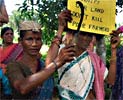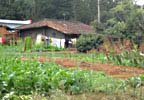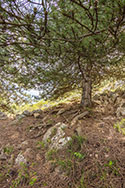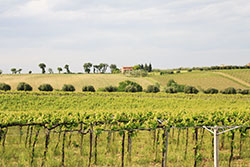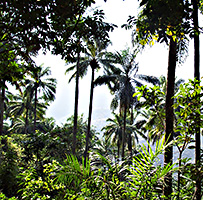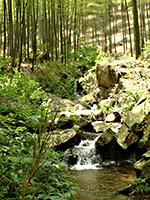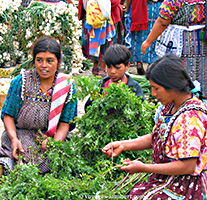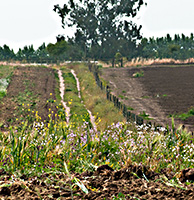Fontamara, a village in Abruzzo, Southern Italy – 1929 (2)
Land reform in reverse
The new government was a disaster. It had reduced the wages of farm labourers by forty percent. Every month there was a new tax and the new fascist mayors appropriated whatever they could lay hands on.
For as long as they could remember, the peasants from the village Fontamara had used the water of a certain stream to irrigate their fields to grow corn and vegetables. To their amazement and furious indignation, the mayor of a nearby town had ordered municipal labourers to change the flow of the stream, to the fields he just had bought for a mere song from a large landowner who was in urgent need of money. Policemen with carbines protected the labourers.
Still, there was one positive point: the new government would soon convene a public meeting in the town to organise a redistribution of land from the plain. Previously it had been a big lake, which was drained. A clever big businessman with good connections with the government at that time had been able to appropriate the land, and the poor peasants of Fontamara missed the bus. They could come to work as daily labourers at a paltry wage.
Berardo, a peasant who had lost his small piece of land by unlucky circumstances, became excited when he heard about the public meeting. At long last the government of the Duce would bring justice and give poor, landless farmers a piece of land.
On the day of the meeting a few peasants, who were by chance not at work in the plain, were picked up by a truck in Fontamara. They were brought to the public square of the town and given a place to sit down. Then they were told that they had to cheer for the notables, the governor and the minister.
How disappointed the peasants of Fontamara were, when the minister left in his splendid big car and suddenly the meeting turned out to be over, without any word about the redistribution of the land. “And the land”, Berardo shouted to a few policemen, “what about the land?” All together they went to the town hall, where a big dinner was being held for the notable citizens. When they kept shouting, an official finally came out and explained that the minister had decided to increase the rent for the small farmers and decrease it for the big farmers. In that way the land would gradually end up in the hands of the big farmers, who were in a better position to get big loans and apply new techniques to improve the yield of the land.
The villagers from Fontamara could not believe their ears. In silence they walked back to their village.
_______________________
Source
The book Fontamara (1933) written by the Italian author Ignazio Silone accurately describes village life at the time the Mussolini fascists came to power.
Go to:
= part 1:
Priest or donkey? - Fontamara, a village in Abruzzo, Southern Italy – 1928 (1) , story 77.
= the next page: The road - a village in Peru – 1930 (1), story 79.
= the Table of contents, story 78.
